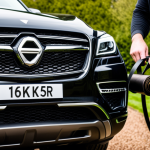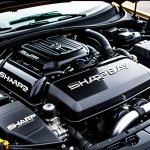Understanding Home EV Charging Station Regulations
Navigating the Home EV Charging Regulations in the UK can feel daunting, but understanding the basics is crucial for both safety and legal compliance. The UK has implemented specific guidelines to ensure that home EV charging installations are not only efficient but also safe for homeowners and their surroundings.
Overview of UK Regulations
In the UK, the UK Electric Vehicle Regulations stipulate that all home EV charging stations must comply with strict safety standards. These regulations are designed to prevent electrical hazards and ensure that installations support grid stability. Installers must be certified, ensuring that they have the necessary expertise to handle the complexities involved in setting up EV charging systems. Compliance also means that the installations are designed to integrate effectively with the home’s existing electrical systems, minimising potential risks.
Also to see : Ultimate Guide to Safely Transporting Your Bicycle by Car: Essential Legal Insights for UK Cyclists
Importance of Compliance
Complying with these standards is essential, not only to avoid legal penalties but also to guarantee the safety of your home. Adhering to Compliance Standards can help prevent electrical faults, which could otherwise result in damage or fire hazards. Consumers should work closely with certified electricians, ensuring that their charging stations meet all necessary criteria.
Incentives and Grants
Currently, there are incentives available for compliant installations. Homeowners can access grants aimed at reducing the initial costs of installing a compliant EV charging station, which makes the transition to electric vehicles more financially appealing. These incentives reflect the UK government’s commitment to fostering a greener future and supporting individuals in making environmentally friendly choices. Understanding these details is a key step in setting up a safe and compliant home EV charging station.
In the same genre : Unlock Superior Performance: The Complete Guide to the Advantages of Synthetic Oil for High-Mileage Vehicles in the UK
Choosing the Right Equipment for Your EV Charging Station
Choosing the right EV Charging Equipment is crucial for the efficient operation of your home charging station. It ensures compatibility with your electric vehicle and optimizes the charging process.
Types of EV Chargers Available
There are several types of EV Chargers you can choose from. The most common are Level 1 and Level 2 chargers, which differ mainly in terms of charging speed. Level 1 chargers are typically the slowest and use a standard 120-volt outlet, making them more portable and suitable for overnight charging. Level 2 chargers, on the other hand, require a 240-volt outlet and can charge an EV about five times faster than Level 1 chargers, making them ideal for regular and faster charging needs. DC fast chargers are the quickest option, providing a significant charge in a short period, but they are more expensive and often reserved for commercial use due to their high power requirements.
Considerations for Equipment Selection
When selecting your charging equipment, consider key factors such as charging speed, cost, and compatibility with your specific EV model. A faster charger like a Level 2 might be more beneficial if you need quicker turnaround times for your vehicle’s charge. Compatibility is also crucial; ensure the charger you choose matches the connector type and specifications of your EV. Assess the installation location and necessary power requirements, which can influence your choice and might necessitate electrical upgrades in your home.
Recommended Brands and Models
In terms of recommended brands and models, several have earned positive customer feedback for their reliability and performance. Brands like Tesla, which offers versatile chargers compatible with Tesla models, or ChargePoint, known for their robust and user-friendly designs, are popular choices. Siemens provides reliable options that are often compatible with non-Tesla vehicles, offering a good balance of cost and functionality. Consider reviewing customer feedback and professional recommendations to find a model that suits your needs and ensures effective home charging capabilities.
Step-by-Step Installation Process
Setting up your EV charging station requires careful planning and adherence to specific guidelines to ensure an efficient and safe installation.
Preparing Your Location for Installation
Before installation, it’s crucial to choose a suitable location for your EV charging station. This area should be easily accessible, ideally within a garage or driveway, to protect your equipment from weather elements. It’s important to consider proximity to the power source, as this can affect installation costs. Ensuring ample space around the unit also facilitates better air circulation and easy maintenance access.
Basic Electrical Requirements
An understanding of the basic electrical requirements is necessary for a successful installation. Most EV chargers require a dedicated circuit with a specific amperage rating, depending on the charger type. It’s usually necessary to have a 240-volt circuit for Level 2 chargers, which might require an electrical panel upgrade. Ensuring your home’s wiring can handle the additional load is essential to prevent overheating and potential fire hazards.
Professional Installation vs. DIY
When it comes to installation, deciding between professional installation and a DIY approach involves weighing the benefits against potential risks. Hiring professionals ensures compliance with all safety standards and regulations, providing peace of mind and warranty coverage. However, a DIY installation can reduce costs if you possess the necessary skills and certifications. It’s critical to assess your expertise and confidence level before embarking on a self-install, keeping in mind the technical complexities and importance of a safe setup.
Ensuring Safety Compliance
When installing a home EV charging station, adhering to EV Charging Safety standards is paramount to prevent potential hazards and ensure peace of mind.
Key Safety Standards
The installation process must follow a series of Compliance Checklists to ensure everything meets the required safety criteria. Regulations require that the installations be carried out by certified professionals to avoid faulty setups that can lead to electrical hazards. Furthermore, it’s essential to use approved materials and follow specific procedures tailored to the type of installation and equipment being used.
Common Safety Issues
One of the most prevalent issues encountered is the risk of electrical fire stemming from improper installations or equipment not suitable for the local power grid. Overloading circuits is a common concern that can be mitigated through an initial evaluation of the home’s electrical capacity by a certified electrician. Safe Installation Practices involve ensuring proper connections, using the correct outlets, and securing all wiring to prevent exposure and deterioration over time.
Helpful Checklists for Personal Safety Compliance
Utilizing a Compliance Checklist can greatly assist homeowners in maintaining safety standards. Such checklists typically include verifying the compatibility of the charging equipment with your home’s electrical system, ensuring all parts are securely fastened, and regular inspection schedules to check for wear or electrical issues. Not only does this promote longevity for your equipment, but it also keeps your installation in line with legal safety requirements.
Maintenance and Troubleshooting
Proper EV Charger Maintenance is vital to ensure the longevity and efficiency of your home charging station. Regular upkeep can help circumvent potential issues before they arise, preserving not only your equipment but also your peace of mind.
Routine Maintenance Tips
- Regular Inspections: Inspect your charging station for signs of wear and tear or any visible damage, such as frayed wires or discoloured outlets. These checks help spot issues early, preventing costly repairs.
- Cleaning the Equipment: Keep the charger and its components free from dust and debris. Use a soft, dry cloth to clean the exterior surfaces and check that vents or cooling systems are unobstructed.
- Connection Testing: Frequently test all connections, ensuring all plugs and couplings are secure. Loose connections could lead to inefficient charging or, worse, safety hazards.
Common Issues and Their Solutions
Some common issues include slow charging speeds or a complete lack of power. Often, these problems stem from poor connections or inadequate power supply. Resolving such issues generally involves tightening connections or upgrading the home’s electrical panel. For charging stations that continually trip breakers, it might indicate an overload on the circuit, necessitating an electrical assessment by professionals. Always refer to the user manual for specific troubleshooting methods catered to your equipment brand and model.
When to Seek Professional Help
It’s crucial to recognise when professional intervention is necessary. If you experience persistent issues that your routine maintenance efforts don’t resolve, or if there’s evidence of overheating or burning smells, shut off the equipment immediately and consult a certified technician. Professional assessments ensure that any risks are properly addressed, and your equipment remains compliant with safety regulations.
Resources and Support
Navigating the world of home EV Charging Resources can be simplified by taking advantage of various tools and communities designed to support EV owners. Ensuring you have access to knowledgeable professionals and up-to-date information is key to seamless operation and maintenance of your charging setup.
Directories of Certified Installers and EV Service Providers
Access to directories listing certified installers and EV service providers can greatly assist in finding qualified professionals for your installation and maintenance needs. These directories often include reviews and qualification details, ensuring you’re engaging experienced personnel who meet industry standards. Utilizing such resources helps avoid common pitfalls associated with hiring underqualified technicians, ensuring safe and effective installations.
Online Resources for Additional Information and Updates
To stay informed on the latest in EV technology and regulations, take advantage of online platforms that regularly update on industry changes and innovations. Websites dedicated to helpful guides and informational articles provide insight into new technologies, charging station updates, and regulatory adjustments. These resources are invaluable for keeping your EV charging station compliant and efficient.
Platforms for Community Support and Experience Sharing
Join community support platforms where other EV owners share experiences and tips related to EV Charging Resources. These platforms allow for exchange of advice, troubleshooting tips, and personal reviews of equipment models. Engaging in such communities enhances your knowledge, leveraging collective experiences to address issues or make informed decisions about future purchases or upgrades.






